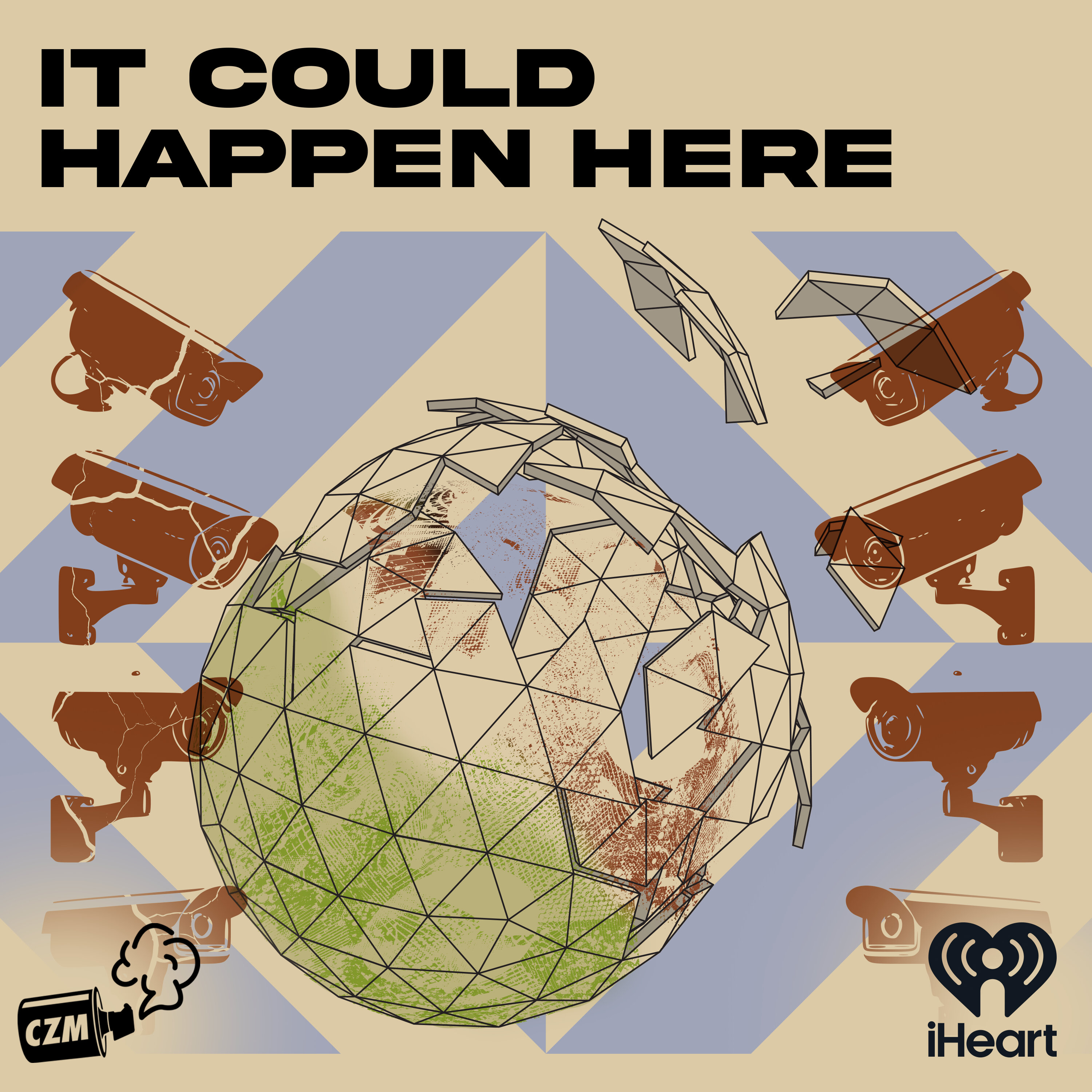Extrajudicial Killing - Let's Know Things
Description
This week we talk about Venezuela, casus belli, and drug smuggling.
We also discuss oil reserves, Maduro, and Machado.
Recommended Book: Dungeon Crawler Carl by Matt Dinniman
Transcript
Venezuela, which suffered all sorts of political and economic crises under former president Hugo Chávez, has suffered even more of the same, and on a more dramatic scale, under Chávez’s successor, Nicolás Maduro.
Both Chávez and Maduro have ruled over autocratic regimes, turning ostensibly democratic Venezuelan governments into governments ruled by a single person, and those they like and empower and reward, over time removing anyone from power who might challenge them, and collapsing all checks and balances within the structure of their government.
They still hold elections, then, but like in Russia, the voting is just for show, the outcome predetermined, and anyone who gets too popular and who isn’t favored by the existing regime is jailed or killed or otherwise neutralized; the votes are then adjusted when necessary to make it look like the regime is still popular, and anyone who challenges that seeming popularity is likewise taken care of.
As a result of that state of affairs, an unpopular regime with absolute power running things into the ground over the course of two autocrats’ administrations, Venezuela has suffered immense hyperinflation, high levels of crime and widespread disease, ever-increasing mortality rates, and even starvation, as fundamentals like food periodically become scarce. This has led to a swell of emigration out of the country, which has, during the past decade, become the largest ever recorded refugee crisis in the Americas, those who leave mostly flooding into neighboring countries like Colombia, Peru, and Ecuador.
As of 2025, it’s estimated that nearly 8 million people, more than 20% of Venezuela’s entire population as of 2017, has fled the country to get away from the government, its policies, its collapsed economy, and the cultural homogeny that has led to so much crime, conflict, and oppression of those not favored by the people in charge.
This has also led to some Venezuelans trying to get into the US, which was part of the justification for a proposed invasion of the country, by the US government, under the first Trump administration in 2017.
The idea was that this is a corrupt, weak government that also happens to possess the largest proven oil reserves in the world. Its production of oil has collapsed along with everything else, in part because the government is so ineffectual, and in part because of outside forces, like longstanding sanctions by the US, which makes selling and profiting from said oil on the global market difficult.
Apparently, though, Trump also just liked the idea of invading Venezuela through US ally Colombia, saying—according to Trump’s National Security advisor at the time, John Bolton—that Venezuela is really part of the US, so it would be “cool” for the US to take it. Trump also later said, in 2023, that when he left office Venezuela was about to collapse, and that he would have taken it over if he had been reelected instead of losing to Joe Biden, and the US would have then kept all the country’s oil.
So there’s long been a seeming desire by Trump to invade Venezuela, partly on vibe grounds, the state being weak and why shouldn’t we own it, that kind of thing? But underlying that is the notion of the US being a country that can stomp into weaker countries, take their oil, and then nation-build, similar to what the government seemed to be trying to do when it invaded Iraq in the early 2000s, using 9/11 as a casus belli, an excuse to go to war, with an uninvolved nation that happened to own a bunch of oil resources the US government wanted for itself.
What I’d like to talk about today is the seeming resurgence of that narrative, but this time with an, actual tangible reason to believe an invasion of Venezuela might occur sometime soon.
—
As I mentioned, though previously kind of a success story in South America, bringing people in from all over the continent and the world, Venezuela has substantially weakened under its two recent autocratic leaders, who have rebuilt everything in their image, and made corruption and self-serving the main driver behind their decisions for the direction of the country.
A very popular candidate, María Corina Machado, was barred from participating in the country’s 2024 election, the country’s Supreme Court ruling that a 15-year ban on her holding public office because of her involvement with an alleged plot against Maduro with a previous candidate for office, Juan Guaido; Guiado is now in exile, run out of the country for winning an election against Maduro, which Maduro’s government has claimed wasn’t legit, but which dozens of governments recognize as having been legitimate, despite Maduro’s clinging to power after losing.
So Machado is accused of being corrupt by Maduro’s corrupt government, and thus isn’t allowed to run for office. Another candidate that she wanted to have run in her place was also declared ineligible by Maduro’s people, so another sub was found, Edmundo González, and basically every outside election watchdog group says that he won in 2024, and handedly, over Maduro. But the government’s official results say that’s not the case, that Maduro won, and that has created even more conflict and chaos in the country as it’s become clearer and clearer that there’s no way to oust the autocrat in control of the government—not through the voting box, at least.
This is part of what makes Venezuela an even more appealing target, for the Trump administration, right now, because not only is Maduro incredibly unpopular and running the country into the ground, there’s also a very popular alternative, in the shape of María Corina Machado, who could conceivably take control of things should Maduro be toppled. So there’s a nonzero chance that if someone, like the US military, were to step in and either kill Maduro or run him out of town, they could make a very sweet deal with the incoming Machado government, including a deal that grants access to all that currently underutilized oil wealth.
This is theoretical right now, but recent moves by the US government and military suggest it might not remain theoretical for much longer.
In mid-November, 2025, the US Navy moved the USS Gerald R. Ford Carrier Strike Group to the Caribbean—the USS Gerald R Ford being an aircraft carrier, and the strike group being the array of ships and aircraft that accompany it—it was moved there from the Eastern Mediterranean, where it was moved following the attack on Israel that led to Israel’s invasion of the Gaza Strip.
This, by itself, doesn’t necessarily mean anything; the shifting of aircraft carrier groups is often more symbolic than practical. But the US government has suggested it might us these vessels and aircraft to strike drug manufacturers across South and Central America, and specifically in Venezuela.
This is being seen as an escalation of an already fraught moment in the region, because the US has launched a series of strikes against small boats in the area, beginning back in September of 2025.
These boats, according to the US government, are drug smuggling vessels, bringing fentanyl, among other drugs, to US shores. So the idea is that the people aboard these boats are criminals who are killing folks in the US by bringing this drug, which is highly addictive and super potent, and thus more likely to kill its users than other opioids, into the country for illegal sale and distribution. So, the claim goes, this is a justified use of force.
These strikes have thus far, over the past two months, killed at least 79 people, all alleged by the US government to be drug smugglers, despite some evidence to the contrary, in some cases. The US’s allies have not been happy about these strikes, including allies the government usually relies on to help with drug-related detection and interdiction efforts, including regional governments that take action to keep drugs from shuffling around the region and eventually ending up in the US.
Many US allies have also called the strikes illegal. The French foreign minister recently said they violate international law, and the EU’s foreign policy chief said something similar, indicating that such use of force is only valid in cases of self-defense, and when there’s a UN Security council resolution on the matter.
Canadian and Dutch governments have been doing what they can to distance themselves from the strikes, without outright criticizing the at times vindictive US government, and some regional allies, like Colombia, have been signaling that they’ll be less cooperative with the US when it comes to drug-related issues, saying that they would no longer share intelligence with the US until they stop the strikes, which they’ve called “extrajudicial executions.”
An extrajudicial killing is one that is not lawful; it doesn’t have the backing of a judicial proceeding, and thus lacks the authority typically granted by the proper facets of a government. Lacking such authority, killing is illegal. Given said authority, though, a killing can be made legal, at least according to the laws of the government doing the killing.
The argument here is that while governments can usually get away with killing people, only authoritarian regimes typically and regularly to use that power to kill folks without going through the proper channels and thus getting the legal authority to do so.
In this case, the facts seem to support the accusations of those who are saying these killings aren’t legally legitimate: the Trump administration has launched these attacks on these vessels




















